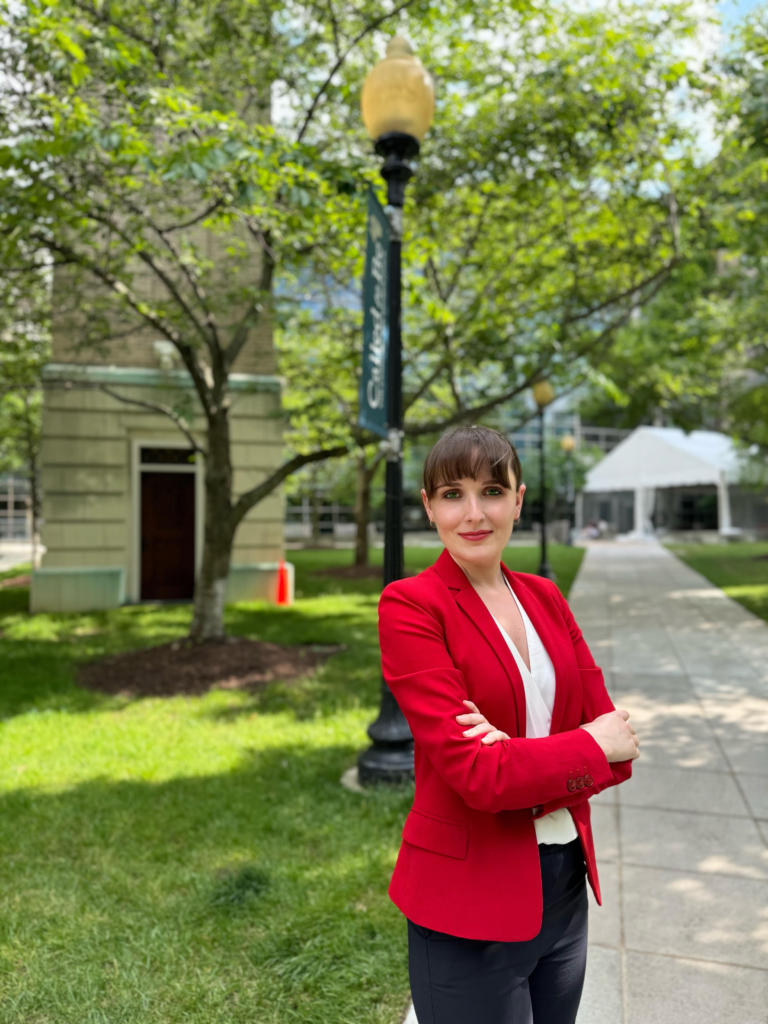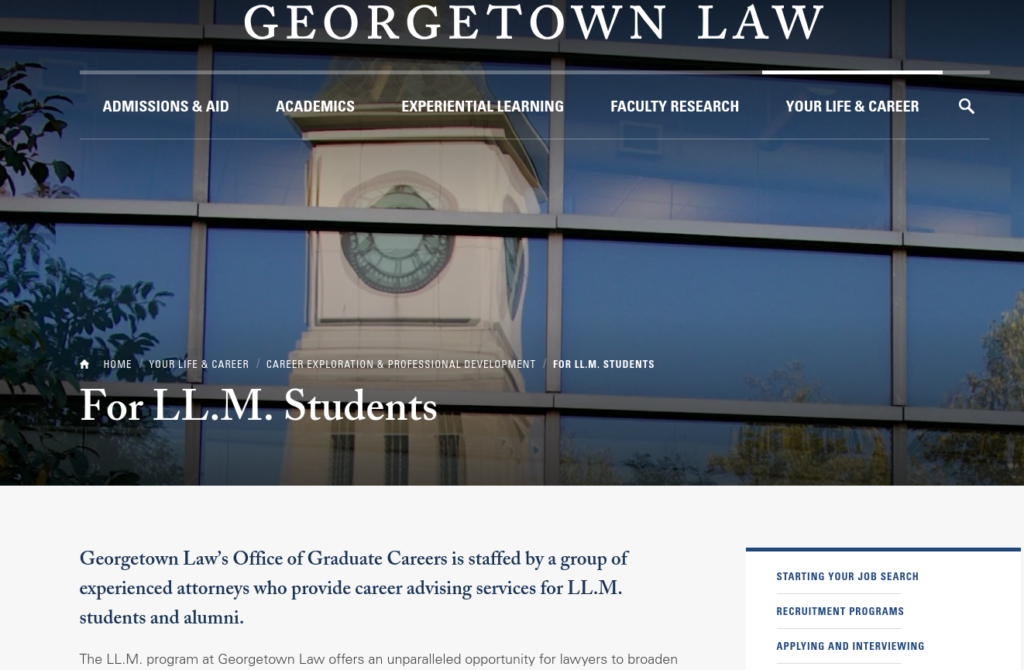Post by Stephen Horowitz, Legal English Lecturer

We are excited to share that Georgetown Two-Year LLM program 2024 graduate Ji Woong Seok recently had his article titled “Standardizing a Global Regulatory Framework: Lessons Learned from a Comparative Study of the U.S., the E.U., and South Korea’s Regulation of Crypto Assets” published in Business and Finance Law Review (BFLR) (Vol. 7 Issue 2), a publication of The George Washington Law School connected with GW’s Center for Law, Economics, & Finance (C-LEAF).
Seok, who is a Senior Manager for Korea Securities Depository and will continue his legal studies in an SJD program this coming fall, cited his work with Prof. Heather Weger in the Fundamentals of Legal Writing course–which all Georgetown Two-Year LLM students take in their first semester–and with Prof. Weger and Prof. Paula Klammer in the Advanced Scholarly Legal Writing course taken during Seok’s second semester of the program.
According to Seok, “I learned how to effectively write a paper in English from the FLW/ASW class. First, I learned how to write a systematic outline. Before the class, I just wrote a rough table of contents when writing. The systematic outline, from the main to the detailed contents, helped me write better. In addition, this class taught how to ensure readers can easily understand the argument through the appropriate placement of main and supporting sentences and anticipate the flow through roadmap sentences. Also, I learned to write a paper concisely by reducing minor facts and simple materials. Lastly, the FLW/ASW class also taught us that the process of reading and revising the paper multiple times is really important. I greatly appreciate Prof. Weger’s and Prof. Klammer’s teaching for two years. It will be of great help in my future SJD course!”
Below is the abstract of the article. You can also click here to access a PDF of the full article.
*********************
Standardizing a Global Regulatory Framework: Lessons Learned from a Comparative Study of the U.S., the E.U., and South Korea’s Regulation of Crypto Assets
ABSTRACT*
Since 2009, various crypto currency tokens (commonly called coins) have emerged, utilizing innovative technologies like blockchain and distributed ledger technology to establish decentralization of finance. The starting point of decentralization was Satoshi Nakamoto’s Bitcoin paper about payment without intermediaries. Since Bitcoin boomed, many experts have predicted that blockchain-based crypto currencies such as Bitcoin, will replace current payment methods and facilitate a shift from centralized to distributed systems of transactions. Furthermore, the public recognizes crypto assets as new objects of investment.
In response to these changes, global market players are developing new financial instruments and systems, and governments have been establishing regulatory frameworks for over ten years. The United States (U.S.) has utilized existing regulations, such as commodities regulation, to respond quickly, while the European Union (E.U.) and South Korea have pursued regulation through new legislation to regulate crypto asset industries.
A fundamental inquiry arises as to whether these tokens, which failed as a payment method, should be regulated as commodities and securities. Suppose new and similar digital things, such as blockchain-based Pokémon or sports trading cards, emerge and are frequently traded in. Should they be subject to these commodities or securities regulations? In situations with uncertain regulatory direction, crypto assets regulation is necessary because huge transactions, similar to those of other financial instruments, are being made between global investors, and investors should be protected from various crimes, such as fraud.
Lastly, the regulatory direction should focus on stabilizing the market, preventing unfair practices, and ensuring investor protection. Moreover, continuous monitoring and international cooperation are needed for the evolving crypto asset industry.
In this paper, I argue that we need a standardized global framework to regulate crypto assets. This conclusion is drawn from analyzing cases in the U.S., the E.U., and South Korea with global regulatory approaches. Specifically, the pros and cons of each country’s regulations covering the “creation and sale of crypto assets,” “crypto asset-related business,” and “investor protection” were examined.
*This article is based on an assignment submitted for the CMDTY & Derivatives Markets class (Prof. Peter Malyshev & Paul Hayeck) at Georgetown Law.





